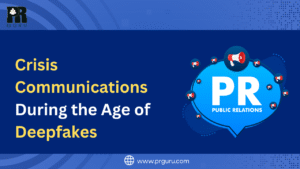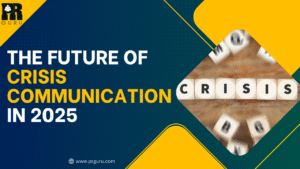Crisis Management: Essential Steps to Safeguard and Strengthen Your Brand’s Image
Do: Have a Crisis Management Plan Ready
By PR-Team | April 4, 2025 | Reputation Management

In a blink of an eye, a small misstep can snowball into a full-fledged crisis threatening your brand’s hard-earned reputation. Crisis management is not about damage control; it is about how you respond, recover, and reshape the narrative. A well-executed strategy can transform a potential disaster into an opportunity for growth, while a poor response can leave lasting scars. Whether it is a social media backlash, a public scandal, or a recall of a product, the way you react in a crisis situation will make all the difference. Let’s dive into the dos and don’ts that are imperative for protecting your brand and reputation during the storm.
Do: Have a Crisis Management Plan Ready

Be prepared for whatever happens. Make sure there is a proper plan for a Crisis Management approach in place, no matter how long in advance the storm is due. It is important to set roles, protocols, and communication strategies clearly defined for key stakeholders involved. When disaster hits, the formal response will always enable your team to act rapidly and effectively.
Don’t ignore the level of the situation
The biggest mistake brands make during a crisis is the trivialization of the situation. If they don’t confront the problem or refuse to acknowledge its reality, then negativity will fuel further and longer. Instead, face the crisis, deal with its impact, and take the necessary actions to respond accordingly.
Do: Be transparent and honest

Transparency is vital in any crisis situation. Whether you’re addressing a public mishap, a product defect, or a company misstep, honesty goes a long way in restoring trust. Your audience expects to hear the truth, even if it’s uncomfortable. Address the issue directly and outline the steps you’re taking to make it right.
Don’t: Engage in Defensive Behavior
When your brand is being criticized, the first reaction could be to play the defensive. Avoid attacking and denying facts or putting the blame elsewhere. Defensive responses often have an adverse effect by making the crisis worse. Instead, focus on taking responsibility and presenting a solution. Remaining calm and professional will go a long way compared to deflecting blame.
Do: Maintain Open Communication Channels
Keep the lines of communication open and consistent. Whether it’s through social media, email, or press releases, make sure your audience knows they are being heard. Respond promptly to inquiries and provide updates on your actions. This will show your stakeholders that you’re actively working to resolve the issue.
Don’t: Forget About Your Employees
Your internal audience is just as important as your external one in a crisis. Your employees need to be kept informed. They are often your first line of defense, and their knowledge of the situation will help them handle public-facing interactions better. Internal updates regularly ensure that your team stays aligned and informed.
Do: Use Social Media Wisely
Social media, in the era of digital communication, can either be your best friend or worst enemy when it comes to a crisis. Make sure that your social media team is ready and able to act quickly, wisely, and consistently. A timely tweet or Instagram post can prevent a rumor from going viral. Remember, once it’s out there, it’s difficult to bring it back. So, think before you post.
Do not overload your audience with too much information

Transparency is great, but overwhelming the audience with too much information makes it confusing. Focus on the key messages and be concise while avoiding too many updates. Make the narrative easy to understand by focusing on how to provide assurance through actionable steps.
Do: Learn from the Crisis
Learn every crisis, no matter how difficult. Once the dust settles, take some time to evaluate your crisis management. Did your team communicate effectively? Were the right steps taken? This reflective process will help you refine your approach for next time and strengthen your overall brand resilience.
Don’t: Let the Crisis Define Your Brand

The crash need not be the end of the story. How you respond defines your brand from here on out. From it, a rebuilt and refreshed public image will emerge. Brands that recover beautifully often come back renewed, refreshed, and loyal to their audience.
Brands can seek expertise from the crisis in situations as they come about and can guide them on the most critical events. Among the top PR agencies, one such PR guru that provides expert crisis management services for brands’ protection in turmoil is there. For years, having the expertise to create strategic responses, PR Guru has made a name as the go-to partner for companies in search of direction through the storm of a crisis.
No matter the scale of this crisis, PR Guru ensures that your brand’s image remains intact and positions it for long-term success. In the present day and age of volatility, being able to have a reliable partner in this aspect can make a lot of difference. To learn how they can assist in protecting your brand’s reputation, go to PR Guru.
Takeaways: Effective crisis management requires swift action, honesty, and transparency. By adhering to these dos and don’ts, your brand can weather any storm and come out stronger on the other side. And remember, with experts like PR Guru by your side, you’re never alone when it comes to protecting your brand’s most valuable asset—its reputation.
Ready to take your PR strategy into 2025 and beyond? Visit PRGuru.in to find out how we can partner together to make your brand unforgettable.
Build authority, trust, and engagement with the right PR moves! Follow PR Guru on LinkedIn for expert tips, success stories, and industry trends








